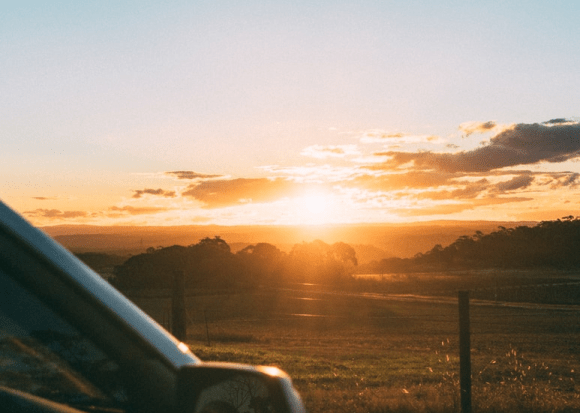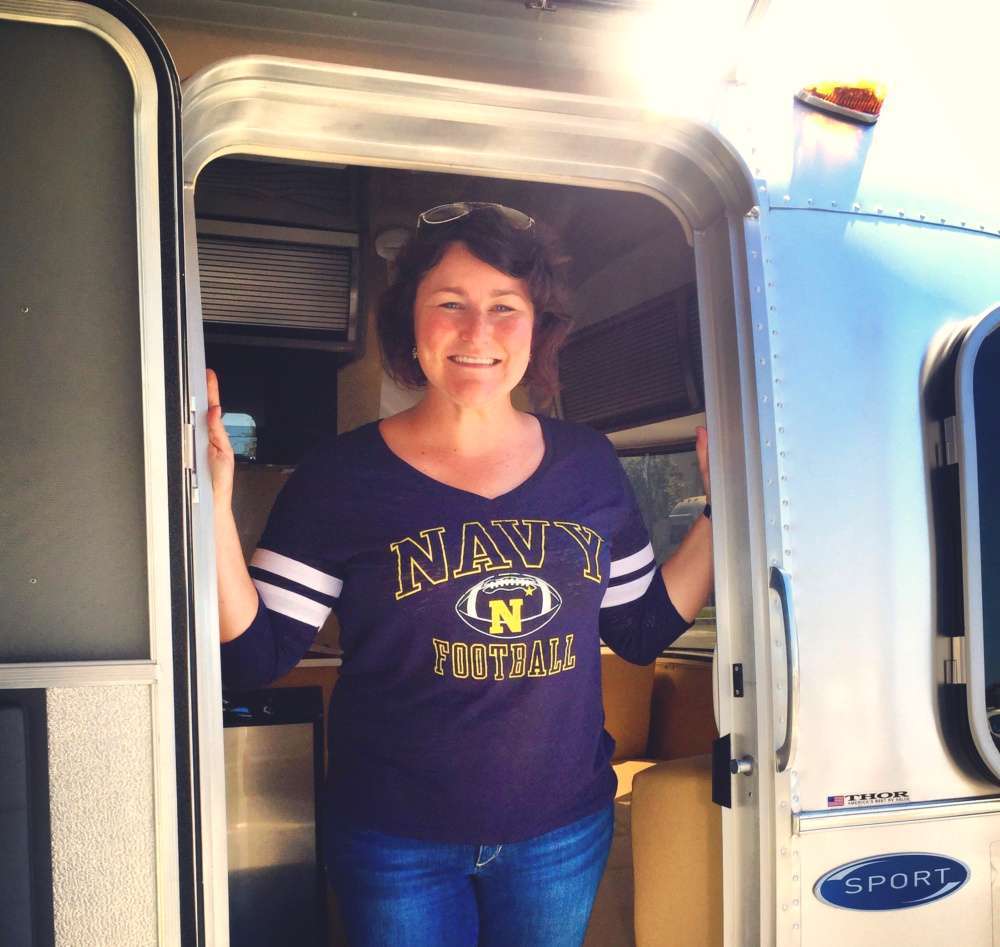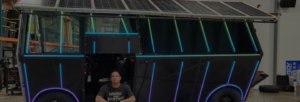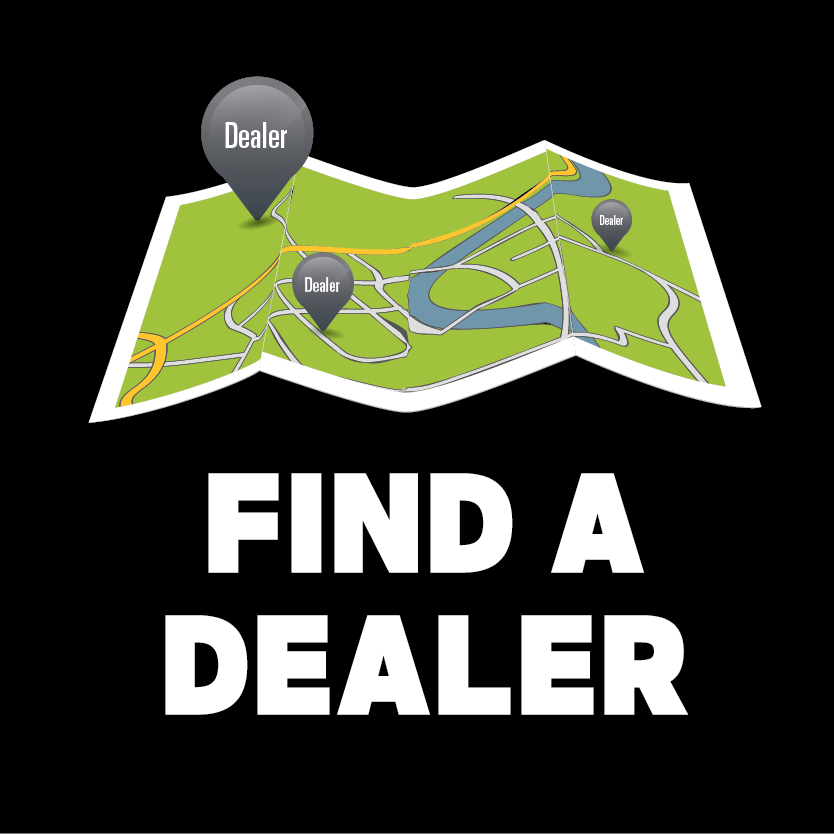Off-Grid Power – Air Conditioners Solar power and lithium battery technology have revolutionized the way...
Read MoreAM I SCARED TO BE OUT THERE ALONE AS A SOLO TRAVELER? NO
Being a solo traveler can make you more approachable, allowing for better tips on local treasures to explore.
Finishing up our developing Solo Female Traveler eBook, which will offer stories and advice from well-known Instagram female travelers, is our interview with solo traveler and veteran, Mary-Elizabeth of @lettersofpromise. Mary-Elizabeth has been on the road since December, 2015, adventuring throughout America in her 16ft Airstream affectionately referred to as The Burrito. Enjoy!
Why did you choose this lifestyle?
I didn’t exactly choose this lifestyle; when I set out, I thought I’d be on the road for six months to a year, 18 months max. But here I am, more than three and half years later and no real end date in sight. I chose to hit the road while going through the military medical retirement process. My entire world shattered. I worked so hard for my career and it was ending due to a debilitating diagnosis. I lost my career, my social circles, and to a large extent, my purpose. Forced to reconsider every aspect of my life, I hit the road to sort that out in my own time and in my own literal space. My Airstream was a place I could hermit up when needed, but was small enough to force me to spend the majority of my time in the great outdoors. I find the outdoors transformational and therapeutic. And that is how I use my RV. I use it as a place to eat, bathe, and sleep, but mainly, to explore the natural wonders this country has to offer. I have lived around the world and spent my entire adult life in defense of our country. But before getting my burrito, I hadn’t seen much of it. This adventure was to be my buffer between what was and what was to be. It was a chance for me to figure out how to live on my own terms with a chronic and difficult condition. It also allowed me to have a mini mid-career retirement before I set out for my next career. To say that initial plan has evolved would be an understatement.
How did you start this journey?
The uncertain nature of the military medical retirement process, meant I had a compressed timeline. It was about two and half weeks spent deciding to traipse about the country and buying an Airstream. I did some very minor preparation before leaving about six weeks later. Before my departure, I was completely consumed with administrative tasks associated with packing my entire household for storage and separating from the military. Because of this, I didn’t do much in the way of research or planning. I was able to get the service manuals for my trailer and spent some time learning the ins and outs of the electrical and plumbing systems of it. My first stop was San Diego for medical services. Beyond that, I had no plan, only a whole lot of possibilities.
What do you love about it?
I love getting to see so much of this beautiful country, especially its public lands and natural wonders. I learned so much over the last few years as well. From the variety of disciplines to the people I’ve met and the new things I’ve experienced. I love staying way off the interstate and seeking out the small, obscure, hidden gems scattered about. My trailer allows me to pursue my outdoor passions like fly-fishing, rock hounding and hiking. My life was pretty exciting and interesting before, but I am keenly aware of how lucky I am now to have the expanse of experiences traveling coast to coast over the last few years. Traveling solo can be a real advantage in finding the little known, especially as a woman. Being solo forces me to interact with more strangers than I’d be naturally inclined to. Also, being a woman, you tend to seem less intimidating to said strangers. Because of this, they are more likely to share everything from their favorite fishing spot, to secret petroglyphs and obsidian fields, to the best pie in town, to their family’s homesteading history.
Pro tip: seek out the eating establishment in a small town that has the most work trucks or emergency service vehicles. Eat at the counter. Sit next to an old timer if you can. The food will likely be great, but the characters and company will likely outshine whatever you order.
What do you hate about it?
There’s nothing I hate about it, but there are annoyances and inconveniences. Everything, from getting mail to going to the grocery store, takes more consideration and planning than you’d expect. As a solo traveler, you have no one to share figuring out where to sleep, how much longer you can go before you need water, or where the closest dump station is. There’s no one to help find camping spots, or scope out the parking lot situation at the next grocery store as you drive. Everything becomes a bit more time consuming. From finding that camping spot, to leveling, backing up, hitching up, repairs, and even the super basic things like stowing everything to tow, everything is more time consuming and difficult without a partner.
I would be lying too, if I didn’t admit that there have been times when I was a bit jealous of my friends traveling with partners. Ultimately though, I am grateful that I deal with a multitude of emergencies and situations on my own. I have became a more competent RVer faster not having anyone to rely on but myself.
What were the challenges you faced to get where you are today? Do you still face these challenges or are there new ones?
There have been challenges along the way. I have dealt with blown out tires, converters afire, trailer wheels shearing off on the interstate and the like, but you deal with those and move on. For me, the challenges that have stuck with me this entire time seem pretty basic. I struggle with food, storage, and budgeting, and routine at large. In my past life I prepped nearly all my meals for the week ahead. With my tiny fridge now, I have found that to be nearly impossible without wasting excessive amounts of time planning ahead and hoping I can find what I need at the next store.
When I set out, this was only supposed to last six to twelve months. Now, more than three years later, I’m hauling around a year’s worth of clothing for every season, outerwear, skis, snowboards, outdoor gear, jewelry making equipment, art supplies, books, and the like, and my storage situation has become impractical and difficult to live with. My storage is extremely limited in my trailer and the bed of my truck houses all of my RV stuff (like a generator and outdoor oven/stove, hoses etc) and all of my outdoor and backpacking gear. The answer is to get a bigger RV or less stuff. I’ve been at this impasse for a while and need to make a decision.
Routine; some people are good at it and some are not. I am not, though I operate best when I have a routine even if I bristle at the word. Working a job with regular hours has definitely helped, but it’s something I need to get better at doing on my own.
One challenge I have that many do not is consistent medical care. I have to have blood drawn ever few months, which requires me to either be delinquent or fly back to Florida for a day or two of medical appointments. My doctors and I have reached a compromise in care, which has allowed me to scale back on my appointments. I must still take medication daily and keep tabs on where the closest hospital is should I need to be admitted. I’m lucky that I’m able to get three months worth of medication at a time mailed to me, usually via USPS General Delivery at some point ahead of me. But being solo, I have to be able to make the call to go to the hospital early on as I’m likely hours away from it and it’s a stresser that is always at the back on my mind.
My daily medical care is definitely a challenge, but it’s one I would have regardless. I am happiest on the road, and until my condition proves itself to be completely unmanageable with remote care, there I’ll stay. Which brings me to my latest and newest challenge; when do I stop? I’ve given this a lot of thought recently and I feel like I may be coming to a point in which I want to pause for a little bit and enjoy long showers and beefing up my retirement account again…or maybe not. I don’t know right now, and I’m ok with that, even if my family members are less so. Change is inevitable and I’ll be ok with that too whatever form it takes. RV life isn’t a competition, it’s a choice, and there are no trophies for “longest on the road”. Even if I do stop for a time, I can’t imagine I won’t ever hit the road again…there’s still too much I have yet to see and experience.
Do you feel being female RV’ers/travelers poses a different scenario than being a male RV’er/traveler
This is a sticky subject for me. RVing as a woman shouldn’t be any different than it is for a man. Apart from some men being able to lift heavy truck tires more easily when the inevitable flat happens, it isn’t. Your RV doesn’t care what your gender is, but it does care about routine maintenance. Backing up a trailer is not a gendered skill, trust me, I’ve seen some pretty spectacular displays of this truth in action. There is quite literally nothing about RVing that would suggest men or women have any particular advantage or disadvantage. Even so, the number one question I get, especially from women, is am I scared to be out there alone. The short answer is “no”. I should not have to be fearful because of my gender, and so I refuse to be. I am not suggesting that the world is always a safe place, but the world in which women are told they should be afraid simply because they are a women needs to change. I combat that lopsided mentality by doing exactly what I would suggest anyone of any gender do:
I know my RV in and out; knowledge is power. I may not be able to fix a system, but I at least know how to not make a bad situation worse. If you don’t feel comfortable with electrical or plumbing systems go online and start with the basics. There are many great resources out there. If you’ve never done any electrical work, start with basic electrical engineering theory before you tackle RV specific information. Your local library is also a great resource for basic plumbing and electrical resources. Understand what your RV should look like when weight is properly distributed. Ask the questions about hitch height, tire pressure, and hitch maintenance that you might feel too embarrassed to ask. How full does your black water tank need to be to drain properly? Find out why your sway system actually works. Understand your RV brake system and the difference between hydraulic and electric brakes. Do research on best practices for breaking while towing or towing in terrain. Think through how you might address certain emergencies before you ever hit the road. Going through the thought process reaps dividends when it actually happens. Keep the mentality that you will always have to self-rescue.
I favor remote boondocking locations and I practiced and practiced until I could go from unhitched to stowed for towing and ready to drive in five minutes or less just in case I ever needed to get out quick. I’m wary of how much information I share with strangers about where I’m camping, my route, or my plans. I rarely if ever post to social media with my real-time location. I keep in mind how difficult it would be to get out of a particular camping location in the dark in a hurry, just in case I have to hitch up and go in the middle of the night. I have only had to do it once, and I was glad for all of that practice. Above all, trust your gut, whether it’s that weird fan noise you can’t figure out but seems important for some reason, or the impromptu drunken hunting season bonfire party that just erupted next to your camping spot, trust your gut. But this is advice I would give any RVer, solo or not, woman or not. Know your systems. Keep emergency equipment and tools somewhere easy to reach. Know how to use your jack and how to change a tire. You may have roadside assistance, but that won’t help you when you’re out of reception. (Note: many tow companies will not render assistance on forest service roads and similar roads due to insurance restrictions).
Who are your biggest supporters for this lifestyle?
My parents, family, and friends. My parents are my biggest supporters, for sure. But I honestly, don’t have any detractors. If I do, then they keep their opinion to themselves.
If you could do it all again, would you? Is there anything you would change?
Absolutely. But if I had known that I would be on the road this long and was able to take time to plan properly, I would have probably gotten a slightly larger trailer. Not for the space, but for the weight of my “stuff for every season and outdoor pursuit”. But you won’t know exactly what you need until you do it for yourself.
Do you need to have a lot of money to do this?
How do you support yourself while on the road?
What would be your advice to those women who are looking to begin their journey as a solo female RV’er?
What is the longest amount of time you have spent continuously on the road?
Any tips, tricks or hacks that you may be able to offer those who are just starting out?
- Never run out of RV toilet paper. You’ll make that mistake exactly once.
- Really get into your systems and understand them. Removing the mystery does wonders for your confidence.
- Have more emergency equipment than you think you need. Hopefully you never will need it, but you’ll be glad to have it if you do, and be sure to keep it easily accessible.
- Figure out what your limiting factor is. For me, it’s water. I have a 23 gallon freshwater tank and a 37 gal combined black-grey tank. Dishes are my big water hog. I installed an on-off button in my shower and have gotten my complete showers down to about two gallons.
- Invest in some good dry shampoo, the unofficial patron saint of road dwellers.
- Unscented baby wipes or body wipes like the Epic brand are amazing water savers. You don’t need to shower daily, but staying clean is important.
- If you’re set on boondocking, be sure to budget for a night or two at an RV park now and again to get your batteries completely topped off, fill up your propane, enjoy wifi, do laundry, and take long showers.
- Truck stops are your best friend as is a credit card that gives you maximum cash back on gas purchases.
Is there one story that sticks out in your mind that makes the experience and journey all worth it?
Can someone message you if they have any questions about starting the RV/Van life?
LATEST NEWS
Watch product troubleshooting videos, read the latest in company updates, and stay up-to-date on trade-shows and events.
Creating the Ultimate Solar-Powered Car
Few people have a more diversified portfolio when it comes to custom car builds than...
Read MoreGo Power! Wins Gold in
Go Power! Wins Gold for Favorite RV Solar Product in the 2024 Wildsam Reader’s Choice...
Read More
STAY UP TO DATE
Get news, product specials, and event invites directly to your inbox.








